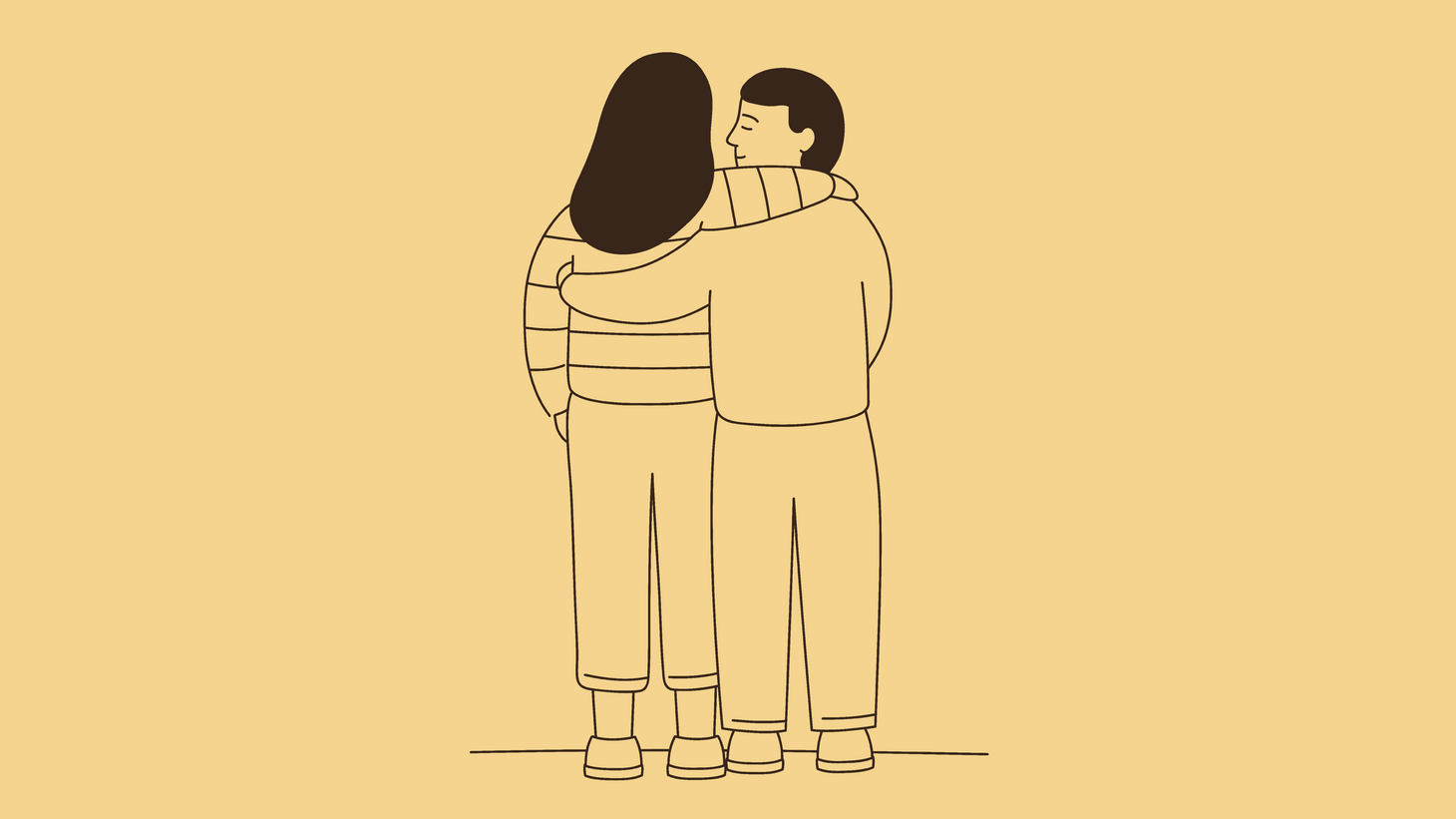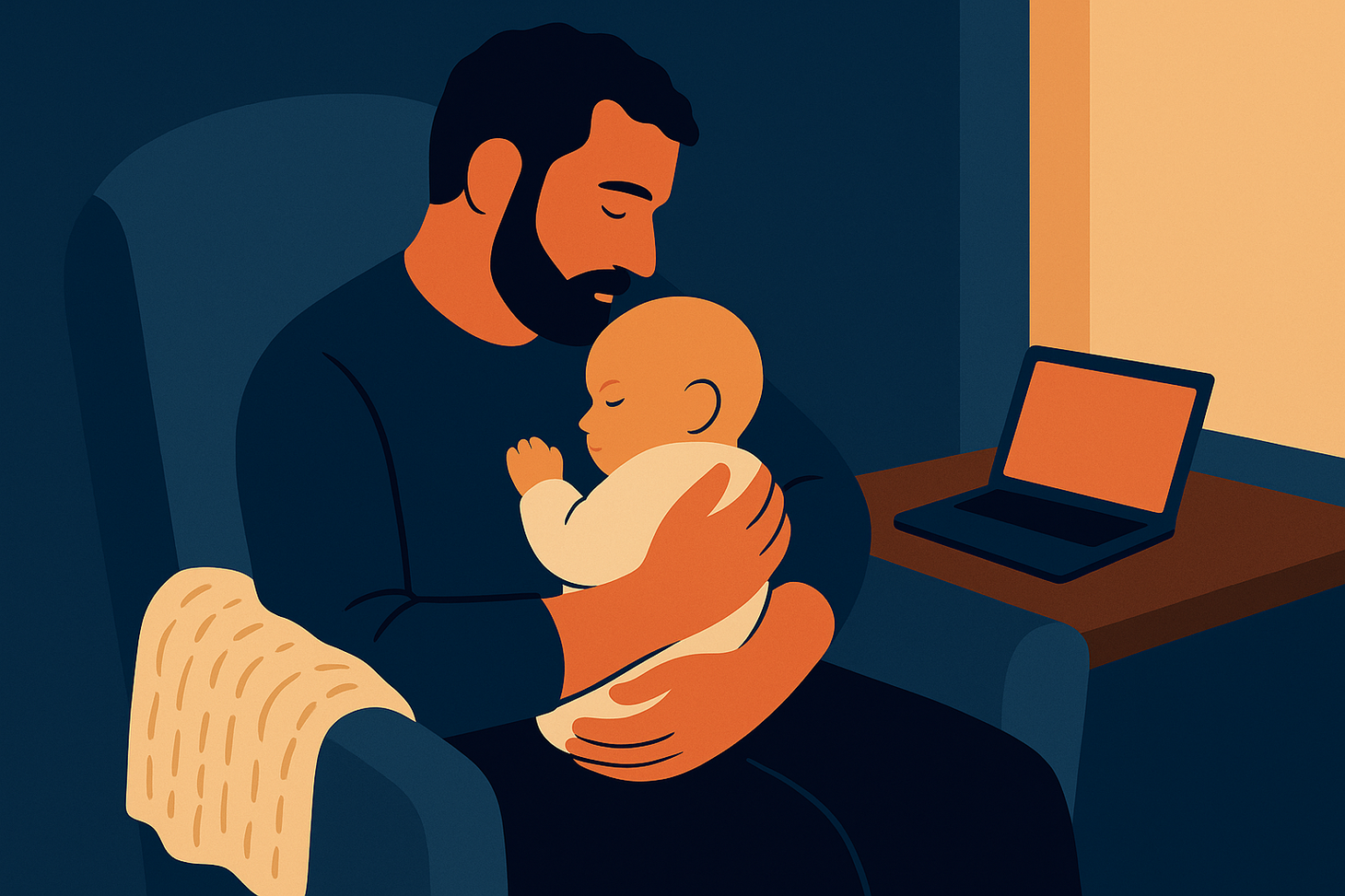Why do we listen worst to those we love most?
Romantic partners, kids, co-founders, employees...often the more we feel is at stake the harder it is for us to really show up.

Confessions between friends
I walked out of the gym this morning to see a missed call from one of my best friends. We hadn't spoken all summer since we were both out of the country navigating jet lag, travel, and young children. So I was thrilled when she picked up after I dialed her back on my drive home. As you can only do with a very good friend, we picked up like no time had passed.
We took turns swapping stories about our summers. What we loved about our trips and what felt hard. A shared theme was navigating travel with young kids.
She shared with me a point of personal frustration she was wrestling with.
She explained, "I realized this summer that I find it really hard when my kids are angry or showing up with any kind of big emotion. I find myself just wanting them to stop and be ok."
Listening, I found myself filled with empathy.
I should know better
As an executive coach, I spend time every day listening for a living. I sit with people as they express all kinds of emotions: anger, joy, frustration, envy, angst, lust, desperation...the full gamut.
In coaching training, we are exposed to a lot of ideas on what it means to really listen, to really be with someone and whoever they are experiencing.
And daily sessions with clients give me a lot of reps in doing so.
And yet, as my friend expressed her frustration with herself on the way she found herself showing up with her kids, I found myself filled with empathy.
I too find it incredibly hard to be fully present with those I love most while they are expressing big emotions. I can think of examples in my own life this week where I found myself in the room with one of my own family members wanting their big emotions to go away so I could feel better.
I shared this with my friend. And I could hear her voice relax knowing she was not alone in this challenge.
"Why do you think it is so hard?" she asked.
I thought for a moment. Knowing I did not know for sure. But I shared what came up, "I know for me, in my home growing up, anger was not ok. Anger meant something important was at risk. It meant there was danger. My dad in particular did not have a healthy relationship with anger. And I learned at an early age that my job in the family was to help ensure that everyone was ok especially when Dad was angry."
My friend paused, considering her own childhood.
"Yes. That totally makes sense. I think there is something there for me too."
We went on to explore how we might be more present with those we love even, or especially, in their most emotional moments.
Irrespective of our childhoods, many of us find it hardest to be really present, and to really listen to, those we love most. I think part of the reason is that more feels at risk.
With a client, or even with a friend, it is easier for me to feel like whatever is going on for her or him is quite separate from me. And that frees me to really listen to what they are experiencing, to let them have their experience. To simply be with them.
Often, when my partner or one of my children is having a big emotion, my inner voice in my head begins to make it about me.
"If I was a better partner, she would not feel this way."
"If I was a better father, my son/daughter would do [fill in the blank]."
Or, in my time as a founder and CEO, "If I was a better CEO, my [investor, co-founder, employee] wouldn't be [having this negative emotion, question, fear, etc.]
The catch
The catch is, as humans, what we often need most in our hardest moments is someone to simply be with us. Our presence is medicine.
If we are going to be helpful to those whom we love most, the key, is to practice being in the presence of others' emotions without taking any of it personally.
Whatever happens around you, don't take it personally... Nothing other people do is because of you. It is because of themselves.
― Don Miguel Ruiz
Even if has your name on it, "You were such a [expletive] when you did [accusative action]!" The key is to simply be with the person in front of us.
The resolution can come later. The sorting of how we each hold whatever happened or what actions need to be taken. The first step is presence.
And presence is hard.
That is why it is a practice.
And if you are anything like me, the wonderful thing about spending time in the presence of our kids, lovers, co-founders, and close friends, is they give us plenty of opportunities to practice. Just being with them. Simply letting them have their experience. Allowing it to not be about us.
- Matt
Sanity Notes Newsletter
Join the newsletter to receive semi-weekly updates in your inbox.


